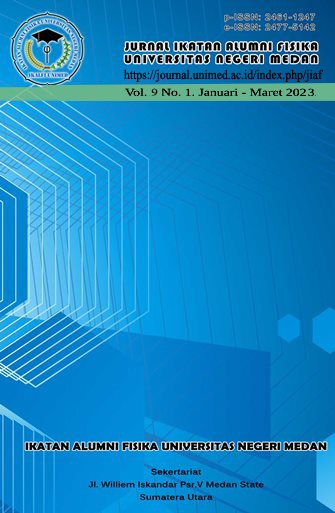Pengembangan Instrumen Tes Berbasis Media Adobe Flash Professional CS6 di MAN 2 Model Medan
DOI:
https://doi.org/10.24114/jiaf.v9i1.34242Keywords:
Pengembangan, Instrumen tes, Adobe Flash Professional CS6Abstract
Penelitian ini bertujuan untuk mengembangkan instrumen tes berbasis media Adobe Flash Professional CS6 yang memenuhi kualifikasi baik meliputi tingkat validitas, reliabilitas, indeks kesukaran, tingkat daya beda, dan pengecoh soal. Penelitian ini merupakan penelitian pengembangan dengan mengacu pada model Borg dan Gall yaitu : 1) tahap identifikasi masalah, (2) tahap pengumpulan data, (3) tahap desain instrumen tes dan media adobe flash, (4) tahap validasi desain, (5) tahap revisi desain (6) tahap uji kelompok terbatas, (7) tahap revisi produk, (8) tahap uji coba operasional, (9) tahap perbaikan produk akhir. Instrumen tes yang dikembangkan berjumlah 15 butir pilihan berganda. Hasil uji validasi isi diperoleh instrumen tes valid dengan revisi aspek materi, konstruksi, dan bahasa. Hasil uji lapangan diperoleh 60% valid, reliabilitas rendah, 45% indeks rata-rata tingkat kesukaran, 60% daya beda berkategori tinggi, 92% pengecoh soal diterima.Downloads
Published
2023-05-04
Issue
Section
Articles
License
Copyright (c) 2023 JURNAL IKATAN ALUMNI FISIKA UNIVERSITAS NEGERI MEDAN

This work is licensed under a Creative Commons Attribution 4.0 International License.
Authors who publish with this journal agree to the following terms:- Authors retain copyright and grant the journal right of first publication with the work simultaneously licensed under a Creative Commons Attribution License that allows others to share the work with an acknowledgement of the work's authorship and initial publication in this journal.
- Authors are able to enter into separate, additional contractual arrangements for the non-exclusive distribution of the journal's published version of the work (e.g., post it to an institutional repository or publish it in a book), with an acknowledgement of its initial publication in this journal.
- Authors are permitted and encouraged to post their work online (e.g., in institutional repositories or on their website) prior to and during the submission process, as it can lead to productive exchanges, as well as earlier and greater citation of published work (See The Effect of Open Access).

